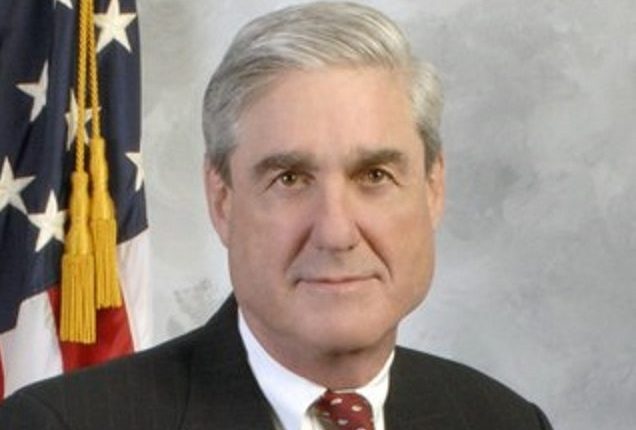 According to reports, President Donald Trump is considering firing special counsel Robert Mueller who was appointed to lead the investigation between Trump’s campaign and Russia. Chris Ruddy, Trump’s friend and CEO of Newsmax told PBS’ Judy Woodruff that Trump is considering terminating the newly appointed special counsel after reports surfaced Trump allies were turning their fire on him. Mueller has come under some criticism for his close relationship with Comey, and over the fact that he interviewed for the job of FBI director after Trump fired Comey.
According to reports, President Donald Trump is considering firing special counsel Robert Mueller who was appointed to lead the investigation between Trump’s campaign and Russia. Chris Ruddy, Trump’s friend and CEO of Newsmax told PBS’ Judy Woodruff that Trump is considering terminating the newly appointed special counsel after reports surfaced Trump allies were turning their fire on him. Mueller has come under some criticism for his close relationship with Comey, and over the fact that he interviewed for the job of FBI director after Trump fired Comey.
Jay Sekulow, an attorney on Trump’s personal legal team, told ABC News that the president has authority to take action if he wants. But, is this true? Can Trump really act by himself and fire the special prosecutor? Isn’t that the entire point of having Mueller appointed– to keep him independent? The law is pretty clear: Trump can not take unilateral action and fire Mueller (however, read this article to the end, there is a small wrinkle that Trump can explore).
(d) The Special Counsel may be disciplined or removed from office only by the personal action of the Attorney General. The Attorney General may remove a Special Counsel for misconduct, dereliction of duty, incapacity, conflict of interest, or for other good cause, including violation of Departmental policies. The Attorney General shall inform the Special Counsel in writing of the specific reason for his or her removal.
“In this case, the Deputy Attorney General since Attorney General (Sessions) is recused, can do it, and only for good cause,” Norm Eisen, an attorney and fellow at the Brookings Institute explained to LawNewz.com. “Now, Trump could order the Deputy Attorney General to do it. Something similar happened with Nixon during the Saturday Night Massacre, and both the Attorney General and the next in line refused to comply with the order. Finally after they were both fired Robert Bork complied. Of course, the result was that Nixon’s end was not far away.”
So that would mean that Trump would have to order Deputy Attorney General Rod Rosenstein to fire Mueller. If he refused to do it, Trump could fire him until he found someone at the Department of Justice that would agree to fire the special prosecutor. However, there is one small caveat that could give Trump’s lawyers some wiggle room.
“The tiny wrinkle is that people who believe in a robust form of the unitary theory of the executive — the idea that the president should control the exercise of all elective power — might argue that the president retains this authority or discretion given that the prosecutor is an executive branch official,” Michael Gerhardt, Professor of Constitutional Law at the University of North Carolina School of Law, told LawNewz.com In Meyers v. United States, the Supreme Court said that the President has the exclusive power to terminate executive branch officials — and of course, the Justice Department is part of the executive branch.
“Indeed the Supreme Court decision in Myers could be read that way. I am guessing that some of the comments from Trump lawyers that he can do this himself could be based on that reading of the constitution,” Gerhardt explained.
Even if Trump’s legal team was able to convince a court that Trump is allowed to fire Mueller, there is no doubt a firestorm would ensue. Of course, similar action taken by President Nixon resulted in his undoing.